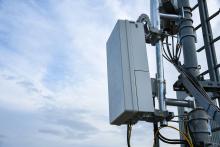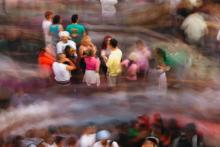One start-up company with designs on making the free Wi-Fi business model work is HotSpotNation. The Gloucester, Mass., company has developed a simple Wi-Fi turnkey system that can be easily hooked up with either DSL or cable modem broadband. Individual locations--typically a coffee shop or a diner--offer the service gratis. "We offer it as a courtesy," said Rick Noonan, the proprietor of Cape Ann Coffees, a Gloucester coffee house that offers free service. "It's been good for business. It differentiates us."
David Malley, HotSpotNation's founder, said the service, which is underwritten by advertising, is offered free to HotSpot operators. Built with the idea of being easy to operate, store proprietors can offer advertising on the system if they choose. Malley says the toughest technical challenge in designing the system was to develop software to make the system secure for its owners. Individual users--usually with laptops--are responsible for their own privacy and security, as they are in most Wi-Fi locations.
Malley has hopes of rolling the system out more broadly and of eventually linking all HotSpotNation sites in a big network. "We want to bring this to a mass market," said Malley. "It's easy to install, easy to use, and affordable."
He contrasts his business model with those of the major firms rolling out subscriber-based Wi-Fi networks, noting that the subscriber-based locations tend to be "too expensive to own, need high maintenance, and you need a professional to operate them."
The future of commercial Wi-Fi sites is still in flux, and it's impossible to tell what impact free commercial locations will have on paid subscription sites. T-Mobile USA Inc. has built out about 2600 Wi-Fi locations for Starbucks and is installing another 1200 at Kinko's locations. McDonald's has been testing the concept for its fast food franchises, and scores of hotel chains offer the wireless service to patrons, sometimes free, sometimes paid. At the same time, the number of free sites is growing rapidly--in all kinds of locations, from libraries and coffee shops, to diners and restaurants.








